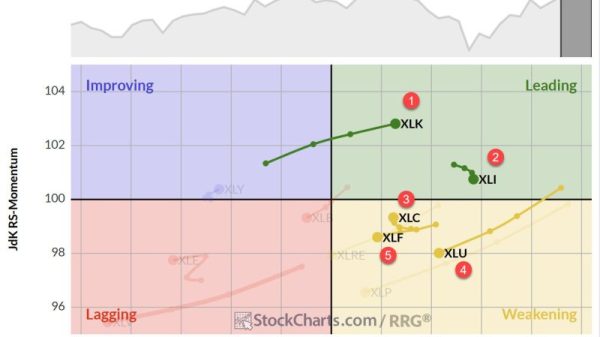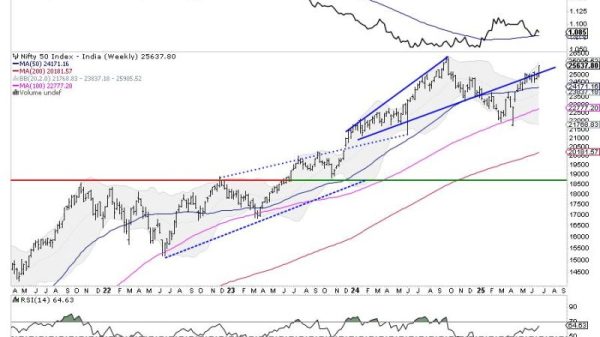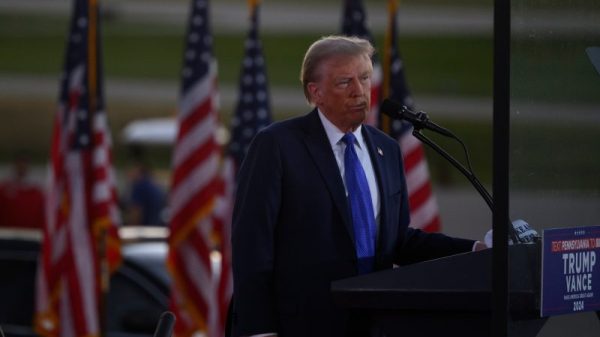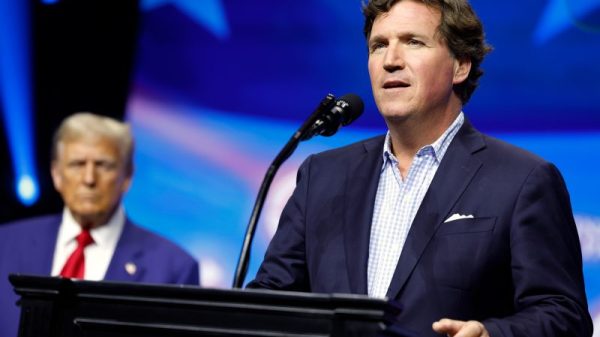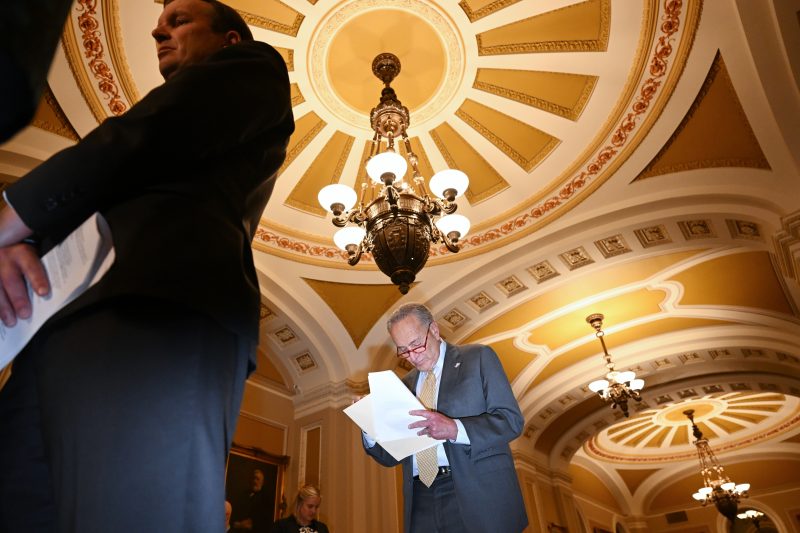The Senate on Wednesday confirmed the next chairman of the Joint Chiefs of Staff, with Democrats briefly relenting in their months-long feud with Sen. Tommy Tuberville (R-Ala.) to push through President Biden’s nominee to serve as his top military adviser.
The vote, while staving off the embarrassment of having the prestigious post temporarily filled by an acting administrator, leaves hundreds of other senior officers with no clear path to advancement, as the underlying political standoff shows no signs of abating.
Air Force Gen. Charles “C.Q.” Brown Jr. was confirmed on a vote of 83-11 after Senate Majority Leader Charles E. Schumer (D-N.Y.) leveraged parliamentary procedure to peel away the nomination from more than 300 others that Tuberville has stifled over his objection to the Pentagon’s abortion policy.
Schumer also moved forward for what could be individual confirmation votes on Marine Corps Gen. Eric M. Smith and Army Gen. Randy George to lead their respective services, seemingly leaving the door open for the Senate to install other new members to the Joint Chiefs as their nominations clear scrutiny from the Senate Armed Services Committee.
For months, Tuberville had delayed consideration of the nominations in protest of the Defense Department’s assistance to service members and their dependents in the form of travel reimbursement if they are stationed in a state where abortions are banned or not readily available. The policy was established by the Biden administration after the Supreme Court overturned Roe v. Wade in June 2022.
Democrats had refused to vote on the nominations individually, as Tuberville suggested they should, but reversed course because Brown’s soon-to-be predecessor, Gen. Mark A. Milley, is required by law to step down from the chairman’s post on Sept. 30.
An independent assessment by the Congressional Research Service last month found that working on the nominations one by one would take months, even if the chamber focused on virtually nothing else.
Following Brown’s confirmation vote, the Senate began work on a motion to advance George’s nomination, with a confirmation vote expected Thursday. The chamber also will work to advance Smith’s nomination on Thursday.
Earlier Wednesday, the Senate voted overwhelmingly — 89-8 — to advance Brown’s nomination, though Tuberville voted against advancing the nomination.
Speaking earlier on the Senate floor, Schumer said he would request unanimous consent to hold initial votes on the three key Pentagon nominations. Schumer threatened to keep lawmakers in the Senate over the weekend while he proceeded to force votes under the chamber’s cloture rules, in the event that Tuberville or another senator objected.
Tuberville did not object to the votes. Moments after the Senate advanced Brown’s nomination, the freshman senator vowed to continue holding the other military nominations if the Pentagon does not change its abortion policy.
In defiant floor remarks Wednesday afternoon after the vote to advance Brown’s nomination, Tuberville did not directly address Schumer’s criticism that he declined an opportunity to hold a floor vote to reverse the Pentagon abortion policy.
Schumer said earlier that Tuberville declined the opportunity because he knows he won’t get a majority to vote with him — choosing instead to hold the confirmations of hundreds of senior military officers hostage to force the Pentagon into doing his bidding.
Instead, in his floor remarks, Tuberville vowed to continue his hold and blamed the months-long delay on Democrats, arguing that Schumer “could have confirmed these nominees a long, long time ago” if he had agreed to approve each nomination individually.
“We could have been confirming one or two a week for the last 200 days,” Tuberville said, alleging that Democrats simply did not want to work. “Senators are perfectly capable of voting. Voting is our job.”
Shortly thereafter, Tuberville reiterated his long-standing conditions for relenting.
“If the Pentagon lifts the policy, then I will lift the hold. It’s as easy as that,” he said.
Tuberville’s words on the Senate floor Wednesday echoed his previous promise to hold up nominations until Defense Secretary Lloyd T. Austin “rescinds or suspends” the policy. In March, when he first mounted his opposition, Tuberville argued that his position is about “not forcing the taxpayers of this country to fund abortion.”
Usually, the Senate advances military nominations through a speedy, bipartisan process in which well-qualified, noncontroversial nominees are approved by the Senate in batches. While it’s possible to vote on military nominations individually, doing so would take months, Democrats have warned. Schumer had long held off on holding individual votes on the military nominees for fear that it would break precedent and allow future lawmakers to slow down key nominations the way Tuberville has.
But on the Senate floor Wednesday, Schumer said that Tuberville’s position is forcing the Senate to move through these first three key military key positions, given that any further delays could pose a risk to national security.
Schumer said that, for more than six months, Tuberville has continued his “brazen, reckless hold of hundreds of routine, nonpolitical promotions of senior military officers.”
“Due to the extraordinary circumstances of Senator Tuberville’s reckless decisions, Democrats will take action,” Schumer said. “Democrats have said all along that these promotions should move forward together, as these nominations have for decades in the past. They should have happened a long time ago, they should have happened the way these promotions have been done in the Senate until Senator Tuberville arrived.”
National Security Council spokesman John Kirby said Wednesday that, while “obviously it’s good” that the Senate is moving forward on confirming the three nominees, lawmakers should have never been put in this position.
He said that while Schumer’s move to force the confirmation votes through is “esoterically just good” for the three officers and the military branches they represent, it “doesn’t fix the problem or provide a path forward” for the hundreds of other nominations still pending.
The situation is not “good for U.S. national security,” he said. “This is a larger problem. It’s caused by one man, one senator who, despite his claims to the contrary, is actually politicizing the United States military.”
Currently, because of Tuberville’s holds, the Army, Navy and Marine Corps have no Senate-confirmed chiefs. It was not immediately clear whether Schumer might move for votes on any of the other open positions.
Schumer’s decision Wednesday comes as the Pentagon’s top military officer, Gen. Mark A. Milley, prepares to step down at the end of the month. By law, he must vacate his job by the end of September and will be replaced on an acting basis by the vice chairman of the Joint Chiefs of Staff, Adm. Christopher Grady, unless the Senate confirms a permanent successor.
Brown, Milley’s expected successor, was lauded as a well-qualified candidate in a hearing in July by members of the Senate Armed Services Committee, and is expected to be confirmed easily if a vote is taken. He has served for the past three years as the top officer in the Air Force, and previously held positions overseeing operations in the Pacific, Europe and the Middle East.
Smith, the acting commandant of the Marine Corps since July, and George, the acting chief of staff of the Army since August, also are expected to be easily confirmed if put up for a vote. Smith told reporters at a conference this month that effectively holding the service’s top two positions at the same time is “not sustainable.”
While 301 high-level military positions have been affected by Tuberville’s hold so far, the number is expected to rise to about 650 of the Defense Department’s 852 by the end of the year, Defense Department officials have said.
Tuberville has said repeatedly that he would not get in the way of Schumer holding individual votes on nominees, but Democrats have said that doing so on each individual nominee is time-consuming and unrealistic.
An assessment by the independent Congressional Research Service released in August said that it would take the Senate more than 30 days to confirm nominees if the chamber worked 24 hours a day without stopping. If the Senate worked eight hours a day, it would take at least 89 days, CRS found.
Republican leadership has also opposed Tuberville’s holds, with Senate Minority Leader Mitch McConnell (R-Ky.) saying in May that he doesn’t “support putting a hold on military nominations.”
Numerous other nominees for four-star positions also are on hold, including five in the Air Force, four in the Navy, two in the Space Force, and one each in the Army and Marine Corps, according to Pentagon data previously provided to The Washington Post. They include nominees for the top two jobs overseeing the Air Force and Navy, and the No. 2 jobs in the Army, Marine Corps and Space Force.
It was not immediately clear whether Schumer might move for votes on any of the other open positions.
A senior Pentagon official, asked about Schumer’s plans Wednesday, expressed gratitude, but said that Tuberville’s hold “remains unnecessary at a critical moment for our national security.”
“We want the Senate to approve all of our nominees,” said the official, who spoke on the condition of anonymity because of the sensitivity of the issue. “How the Senate decides to do that is up to them.”
Austin has previously decried the holds as detrimental to national security and called for Tuberville to release them.
“This is unprecedented, it is unnecessary, and it is unsafe,” Austin said last month at the Naval Academy as Adm. Lisa Franchetti took over as the acting chief of naval operations. “This sweeping hold is undermining America’s military readiness. It’s hindering our ability to retain our very best military officers. And it’s upending the lives of far too many American military families.”
The Post’s Abigail Hauslohner contributed to this report.








